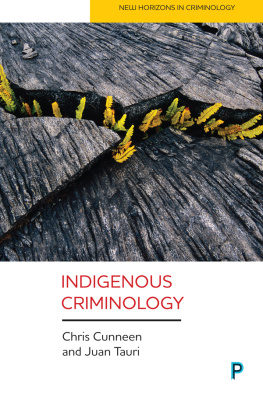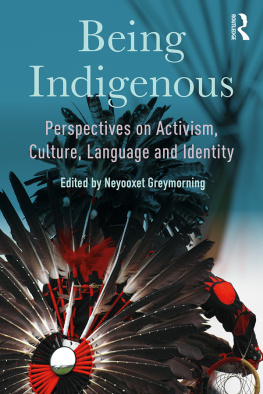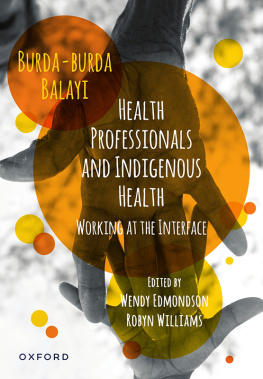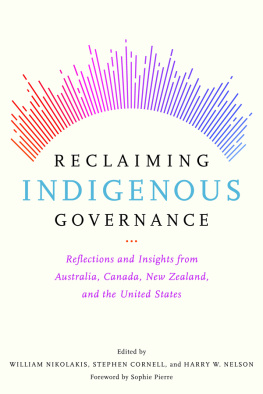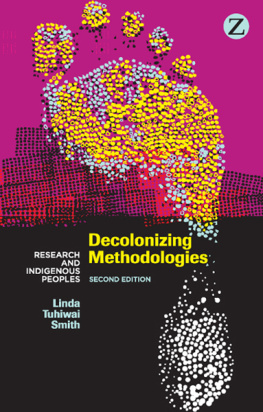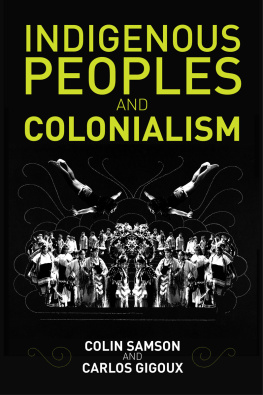The health of indigenous people is an issue that too many governments have avoided and neglected for far too long with the result being that very many of the worlds indigenous populations have health outcomes far inferior to majority populations. This book makes it clear that these unacceptable outcomes are politically and socially determined and seeks to locate indigenous health outcomes in a context of several decades of global market integration that has seen some better outcomes for some indigenous populations but which has also thrown up considerable inequalities that make improved health and lifestyles for these populations a vital challenge for policy makers and for the communities involved. Innovative responses are required, and this book provides the basis for far better informed approaches to indigenous health outcomes.
Kevin Hewison , Weldon E. Thornton Distinguished Emeritus Professor at the University of North Carolina at Chapel Hill
This book provides an impressive overview of the problems that continue to face indigenous peoples all over the developed and developing world. Variously marginalised by processes of modernisation, colonisation, industrial development and globalisation, those that can be defined as indigenous peoples almost everywhere face discrimination and are disproportionately represented in the ranks of the socially and economically disadvantaged. Such a situation, as the book shows, can be easily discerned from the generally poorer conditions of health that indigenous peoples generally enjoy. The book raises important questions about how we understand such fundamental issues as social justice, development and modernity on the basis of the plight of indigenous peoples.
Vedi Hadiz , Professor of Asian Studies at the University of Melbourne, Australia
This important contribution to indigenous studies highlights changes initiated by the forces of globalization. It is an extremely interesting study that weaves together stories of various indigenous groups across the world to discuss policy failures and ramifications.
Ahmed Shafiqul Huque , PhD, Professor and Chair, Department of Political Science, McMaster University, Canada
Globalization and the Health of Indigenous Peoples
In 70 countries worldwide, there are an estimated 370 million Indigenous peoples, and their rich diversity of cultures, religions, traditions, languages and histories has been a significant source of our scholarships. However, the health status of this population group is far below that of non-Indigenous populations by all standards. Could the persisting reluctance to understand the influence of self-governance, globalization and social determinants of health in the lives of these people be deemed as a contributor to the poor health of Indigenous peoples?
Within this volume, Ullah explores the gap in health status between Indigenous and non-Indigenous peoples by providing a comparative assessment of socioeconomic and health indicators for Indigenous peoples, government policies, and the ways in which Indigenous peoples have been resisting and adapting to state policies.
A timely book for a growing field of study, Globalization and the Health of Indigenous Peoples is a must read for academics, policy makers, and practitioners who are interested in Indigenous studies and in understanding the role that globalization plays for the improvement of Indigenous peoples health across the world.
AKM Ahsan Ullah is Associate Professor of Geography, Environment and Development studies and Deputy Dean of Graduate Studies and Research, Faculty of Arts and Social Sciences (FASS), at the University of Brunei Darussalam, Brunei.
Routledge Studies in Health and Social Welfare
For a full list of titles in this series, please visit www.routledge.com
7 Transnational Social Support
Edited by Adrienne Chambon, Wolfgang Schrer and Cornelia Schweppe
8 The Transformation of Contemporary Health Care
The Market, the Laboratory, and the Forum
Tiago Moreira
9 Children with Gender Identity Disorder
A Clinical, Ethical, and Legal Analysis
Simona Giordano
10 Social Housing in Transition Countries
Edited by Jzsef Hegeds, Martin Lux and Nra Teller
11 Philosophies and Practices of Emancipatory Nursing
Social Justice as Praxis
Edited by Paula N. Kagan, Marlaine C. Smith and Peggy L. Chinn
12 Comprehensive Care for HIV/AIDS
Community-Based Strategies
Teresa L. Scheid
13 The Ethics of Care
Moral Knowledge, Communication and the Art of Caregiving
Edited by Alan Blum and Stuart Murray
14 Diverse Perspectives on Aging in a Changing World
Edited by Gillian Joseph
15 Globalization and the Health of Indigenous Peoples
From Colonization to Self-Rule
AKM Ahsan Ullah


